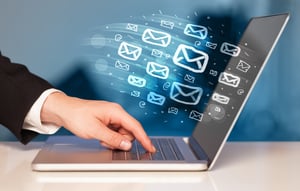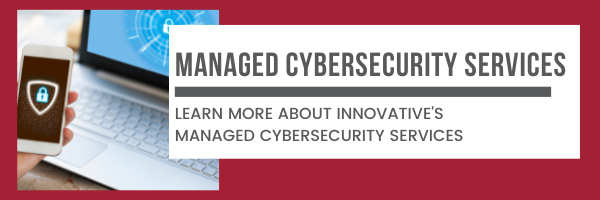Promoting Email Safety in Your Business
It happens quite often – someone points out to you that they’ve received a strange email from this person or that person, or maybe even you. Of course, you don’t remember sending that email and why would you include the need to pay an invoice in it for a co-worker?
Spam and spoofed emails are a common way hackers and malicious programs penetrate business networks, and are nearly impossible to prevent on a global basis for a given network. However, there are precautions that significantly decrease the volume of malicious emails and educate users on how to handle those that make their way into their inboxes.
Email Safety User Awareness
User awareness may be the most undervalued asset in situations such as these. It is crucial for users to identify what is and is not a legitimate email message. Certain spam or spoofed emails may look entirely legitimate, but if that embedded hyperlink points to an obviously bad site; if the email address itself is a bit off; if there’s clearly a number of typos in the email message – it’s this attention to detail that could allow, or keep a virus out of, the entire company’s network.
When a user is in doubt it never hurts to have another set of eyes on the message to just check it out. Someone such as a member of the organization’s IT staff or managed service provider can inspect the message and determine its legitimacy.
Even with the slightest pause – “Have I gotten an email from this person before? Why are they asking about payment?” or “This just doesn’t sound right…” – can bring up a vital conversation and make the difference between downtime to clean up a virus, and keeping everything in standard, working order.
Incorporate CYBER SECURITY into Your Overall Business and Employee Development Strategies
It is essential that your IT team and Human Resources team work together to incorporate not just email security, but all network security and technology-related education into your company’s employee training and professional development programs.
Technology is only as good as its users, and employees are only effective when they have the technology and tools to fully utilize their skills. You are not getting the most out of your technology and workforce investments if your users are not using the technology available to them, or if they are creating unnecessary risks to your network. This is just one example of why a comprehensive technology strategy should be a part of your overall business strategy.
Spam & Spoof Email Prevention
A very useful addition to the native spam and email filtering functions within your existing email platform is an email filtering service. The function of an email filtering service is to provide a gateway between email delivery to the end-user and the external network – like that of a network’s firewall.
Email Filtering Services
With an email filtering service, your IT staff or managed services provider can closely control email and spam filtering rules based on your specific company’s needs and unique threats. Additionally, these services typically offer the most up-to-date threat through real-time, continuous updates of the most current threats.
On a global scale, email filtering services work to add known spam or bad email addresses to their blacklists every day. Specific to the given organization, they allow the IT staff or managed service provider to explicitly block email addresses that may be actively being used to spoof a user’s email or bad email domains that are sending multiple users mass spam. These emails are from then on blocked at the ingress, disallowing it altogether from coming through (unless addressed otherwise in the future).
Other Factors for Overall CYBER SECURITY and Threat Prevention
There’s never a way to entirely avoid spam or spoofed email messages. Native spam filters and paid email filtering services are not perfect, and even the most educated users make mistakes. Therefore, email security is just one prong in your overall cyber security and threat prevention strategy. A multi-layered approach including email security and other cyber threat prevention tools, as well a sound disaster recovery plan that quickly and easily restores your business to full functionality in the event of a breach or cyber-attack is the only way to truly protect your business from falling victim to the wide array of cyber threats it faces.
About Aaron Sipes
Aaron Sipes joined Innovative as a full-time systems technician in January 2018 after a successful internship with the team in the Spring of 2017. Aaron earned his associate’s degree in Cybersecurity from Hagerstown Community College in December of 2017. He also holds a Certificate in Advanced Network Security from Hagerstown Community College. He is a Cisco Certified Entry Networking Technician (CCENT), and holds CompTIA Cloud+, and Cisco On-Premise Networking & Cloud Solutions certifications.




